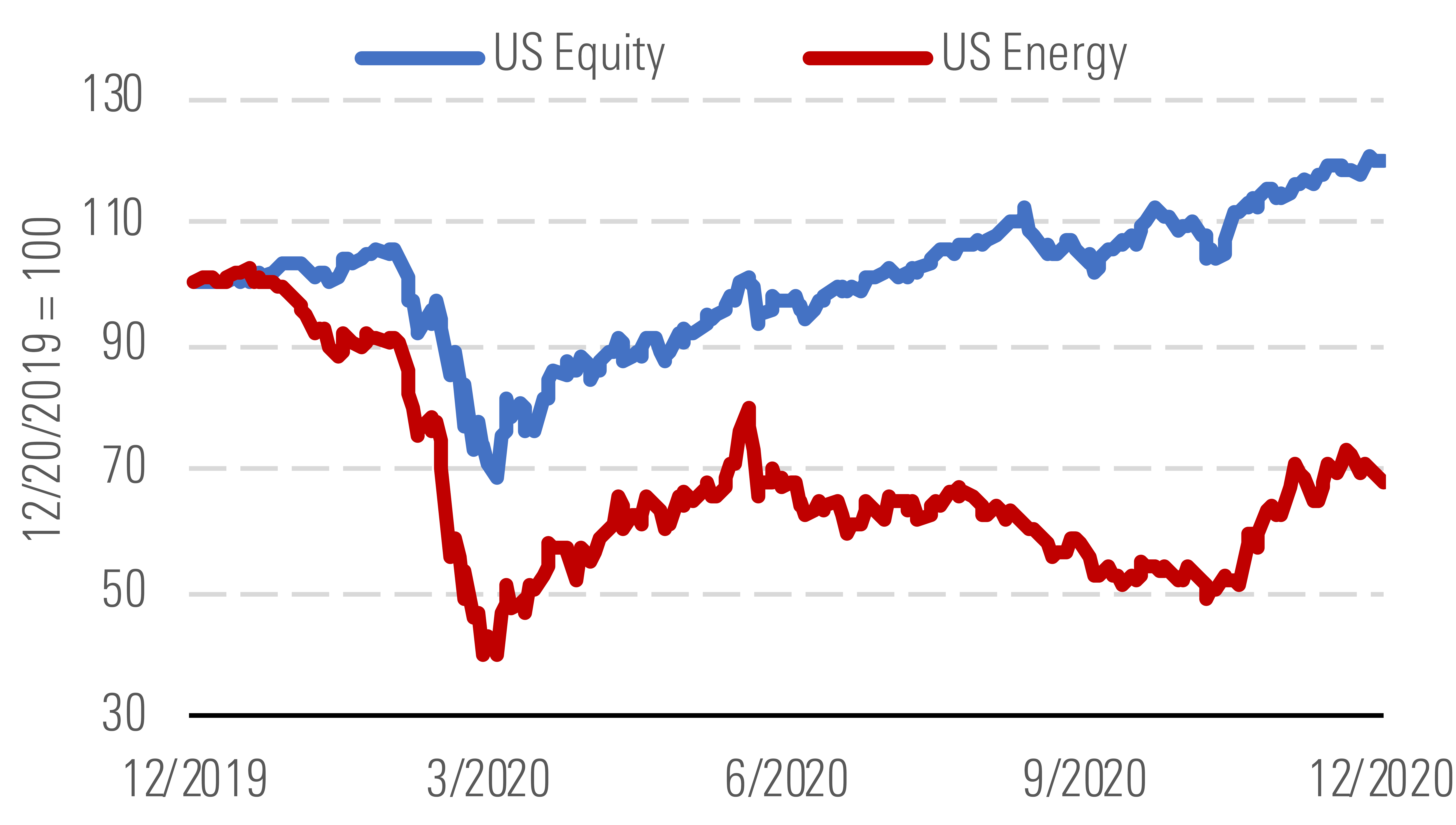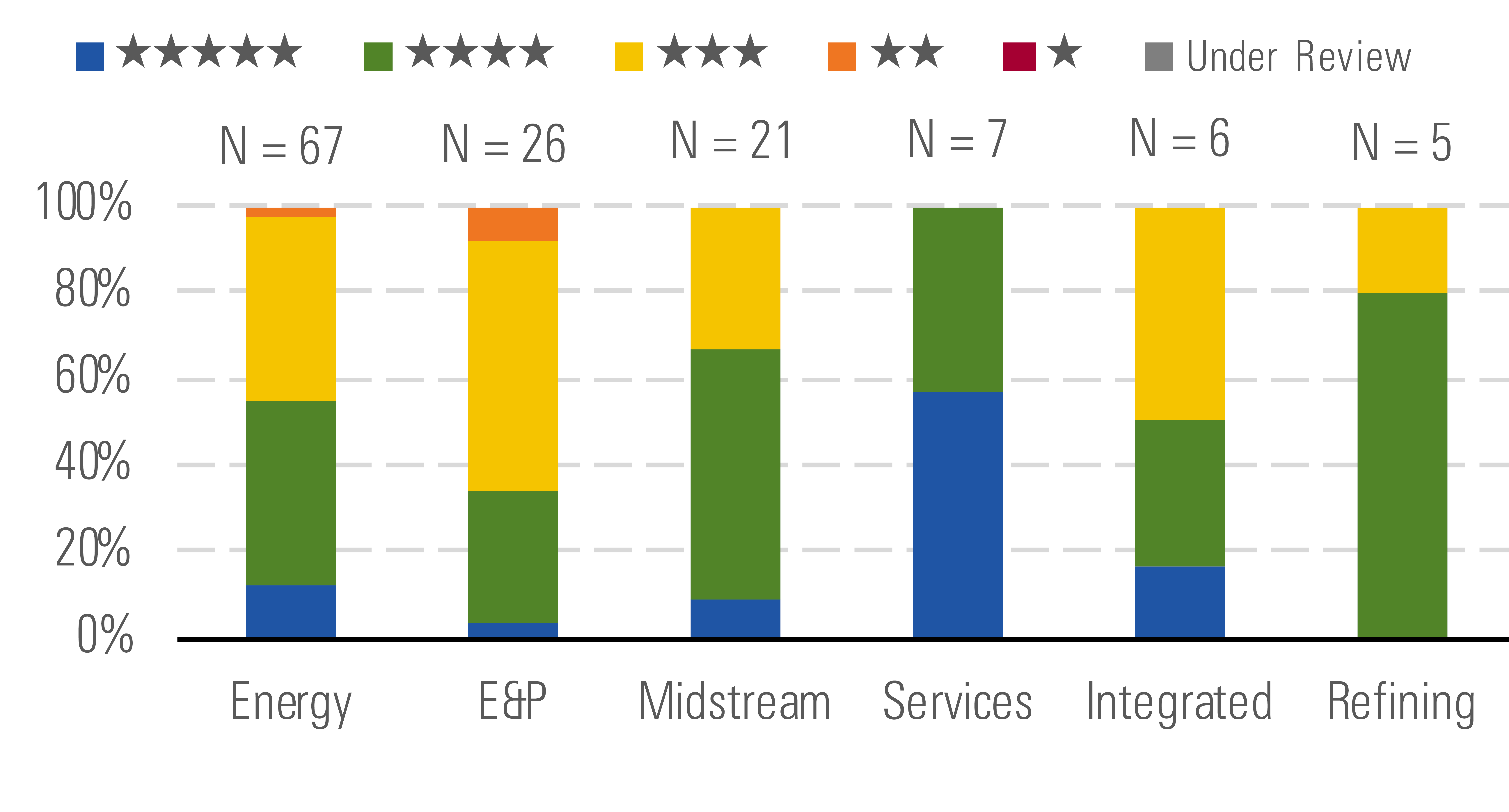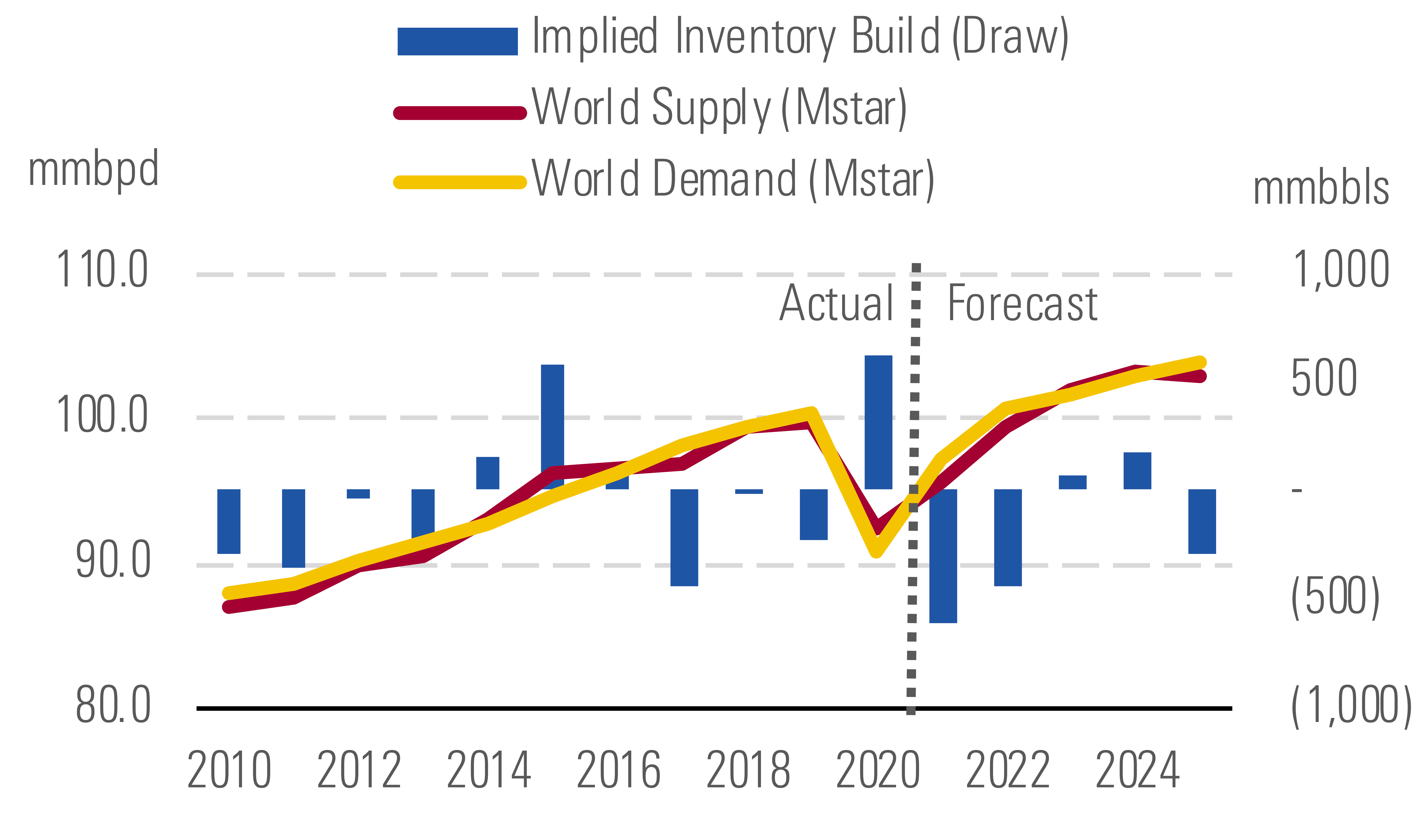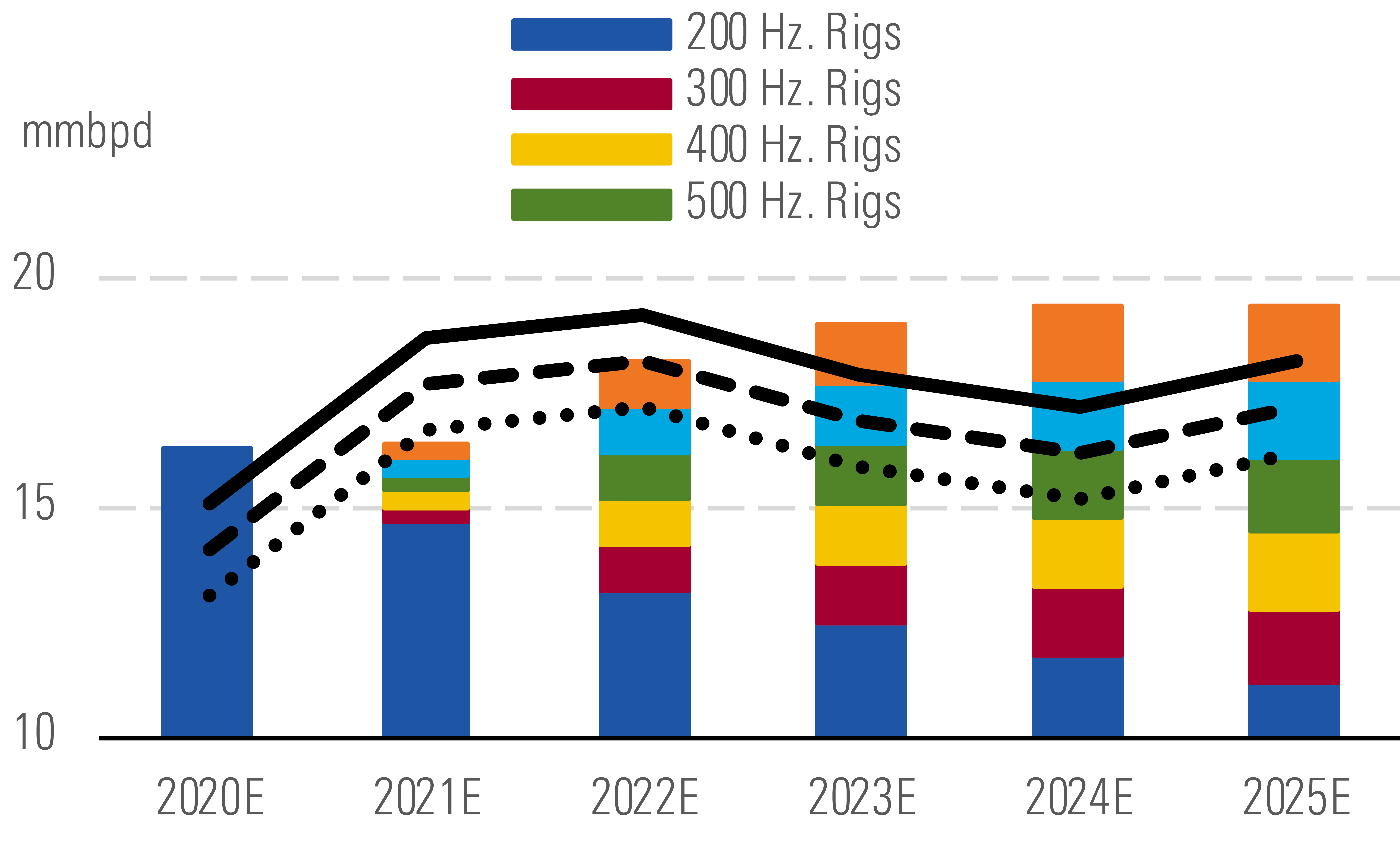Energy Remains the Most Undervalued Sector
We expect a nearly complete recovery in crude demand as the pandemic subsides in 2021.
Following positive coronavirus vaccine trial reports and regulatory approvals in the fourth quarter, the Morningstar US Energy Index rose an impressive 29% in the fourth quarter, outpacing the overall market. Year to date, the outsize impact of the pandemic on crude-oil demand and prices has contributed to a 33% fall in the index versus a 19% return for the market. As initial inoculations continue to be carried out, renewed confidence in a pickup of global crude consumption in 2021 will be a major driver of performance in the first quarter. Energy remains the most undervalued sector, trading at a 22% discount compared with a 6% premium for the overall market.

Stocks are still trailing the broader market, despite the rally - Morningstar

Energy is the most undervalued sector - Morningstar
We still anticipate a near-complete recovery in crude demand when the pandemic recedes in 2021. Beating the virus will enable governments to reopen borders and relax restrictions on gatherings and mobility. But there is much uncertainty about the timing. The latest surge of infections spreading across the Northern Hemisphere is forcing governments to extend lockdowns and travel restrictions, suppressing global crude consumption even further. The longer these measures are in place, the greater the impact will be for the energy sector. Because of the pandemic, we estimate crude demand will have declined by 9.5 million barrels per day, or around a 10% dip in global demand on an annual basis. But the economic recovery we are expecting next year will restore around 6.4 mmbpd of the demand lost right away, and consumption could be close to prepandemic projections by 2023.

2020 oil demand clobbered by COVID-19 - Morningstar
The pandemic's resurgence also spooked oil producers. OPEC and its partners have tempered their plans to ease curtailments by 2 mmbpd, though we still expect an incremental 3.5 mmbpd from OPEC+ over the balance of the year. Shale firms are allocating capital very cautiously in order to shed their reputation for profligacy and poor discipline. Of the 400 rigs mothballed at the beginning of the pandemic, only about 90 have been reactivated so far, bringing the total to about 250. But the Goldilocks level that balances the market in the next few years is more than double that. The industry must bring back another 300 rigs next year just to maintain a comfortable deficit and prevent inventories from drawing too quickly. So higher prices are necessary. And if firms are unwilling to invest enough capital at midcycle prices ($55/bbl West Texas Intermediate, $60 Brent), we wouldn't rule out prices temporarily rising even higher.

The Goldilocks rig count is 500-600 - Morningstar
Top Picks
Enterprise Products Partners EPD Star Rating: ★★★★ Economic Moat Rating: Wide Fair Value Estimate: $25.50 Fair Value Uncertainty: Medium
Enterprise's focus remains on protecting the balance sheet while prudently allocating capital. Seventy-eight percent of its customer base is investment-grade. Fee-based earnings make up 80%-90% of earnings with take-or-pay commitments about half of earnings. Further, with capital spending falling, Enterprise is buying back units ($174 million to date in 2020), and leverage is expected to decline to around 3 times by 2023.
Schlumberger SLB Star Rating: ★★★★★ Economic Moat Rating: Narrow Fair Value Estimate: $48 Fair Value Uncertainty: High
While much of the oilfield-services industry looks like a bargain, Schlumberger stands out as high-quality and deeply undervalued. We expect industry activity to recover from COVID-19, and we even expect long-run activity in international markets to surpass prepandemic levels. This will benefit Schlumberger especially thanks to its international exposure. We think Schlumberger will continue its historical track record of leading peers in technological progress and generating high returns on capital.
Pioneer Natural Resources PXD Star Rating: ★★★★ Economic Moat Rating: Narrow Fair Value Estimate: $159 Fair Value Uncertainty: High
Historically one of the shale industry's more profligate capital allocators, Pioneer is now a poster child for capital discipline and intends to reinvest only 65%-75% of cash flows (still enough to keep output growing at 5% annually). Much of the remainder will be redistributed to shareholders via a variable dividend that will keep payouts calibrated with the commodity cycle, setting an example all peers should follow. Its zero basis Midland Basin acreage contains enough top-tier drilling opportunities to support decades of high-margin drilling.

/s3.amazonaws.com/arc-authors/morningstar/17f48ad3-acb4-4abc-982b-fb3b14ceda2f.jpg)
/cloudfront-us-east-1.images.arcpublishing.com/morningstar/T5MECJUE65CADONYJ7GARN2A3E.jpeg)
/cloudfront-us-east-1.images.arcpublishing.com/morningstar/VUWQI723Q5E43P5QRTRHGLJ7TI.png)
/d10o6nnig0wrdw.cloudfront.net/04-22-2024/t_ffc6e675543a4913a5312be02f5c571a_name_file_960x540_1600_v4_.jpg)
:quality(80)/s3.amazonaws.com/arc-authors/morningstar/17f48ad3-acb4-4abc-982b-fb3b14ceda2f.jpg)